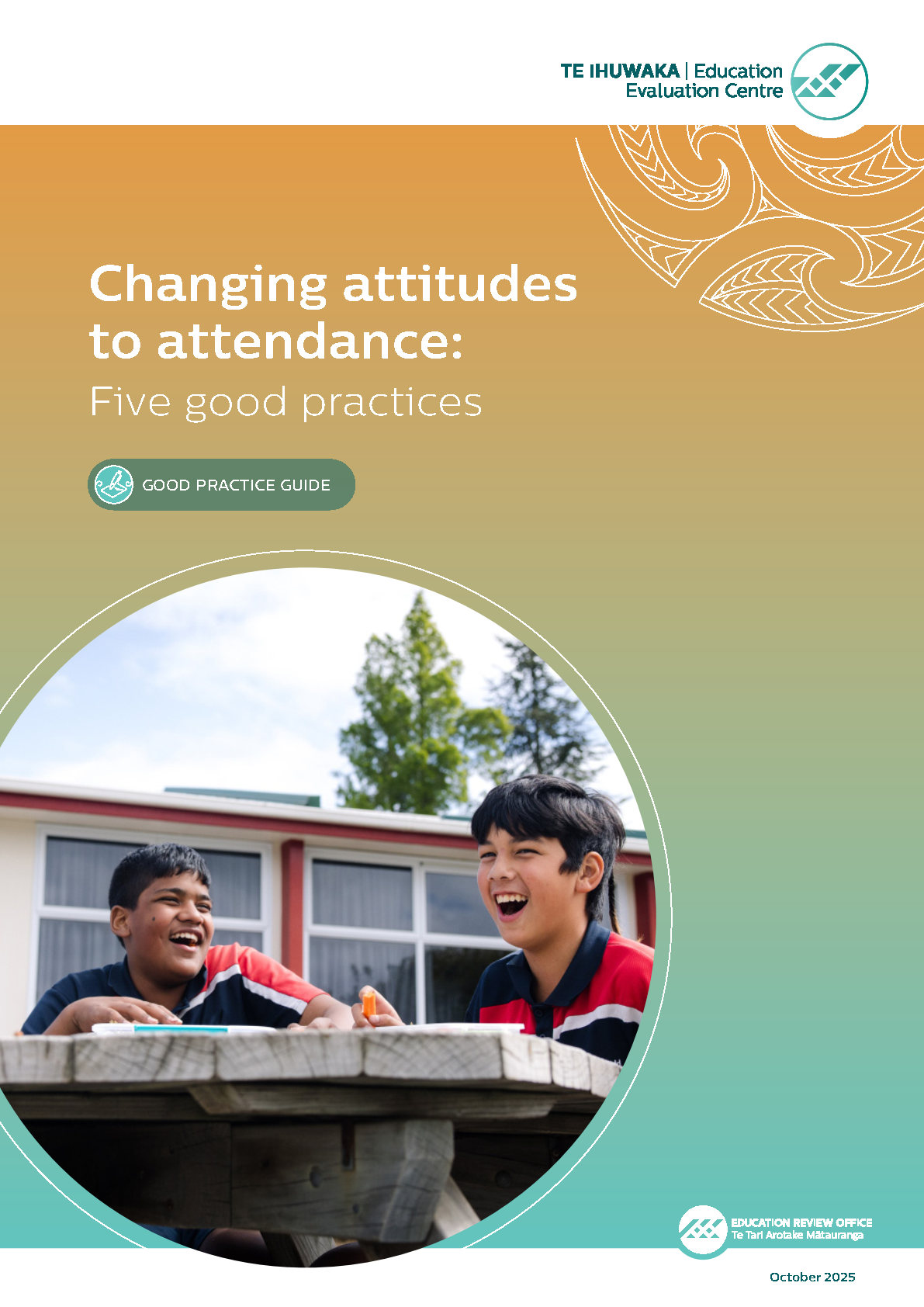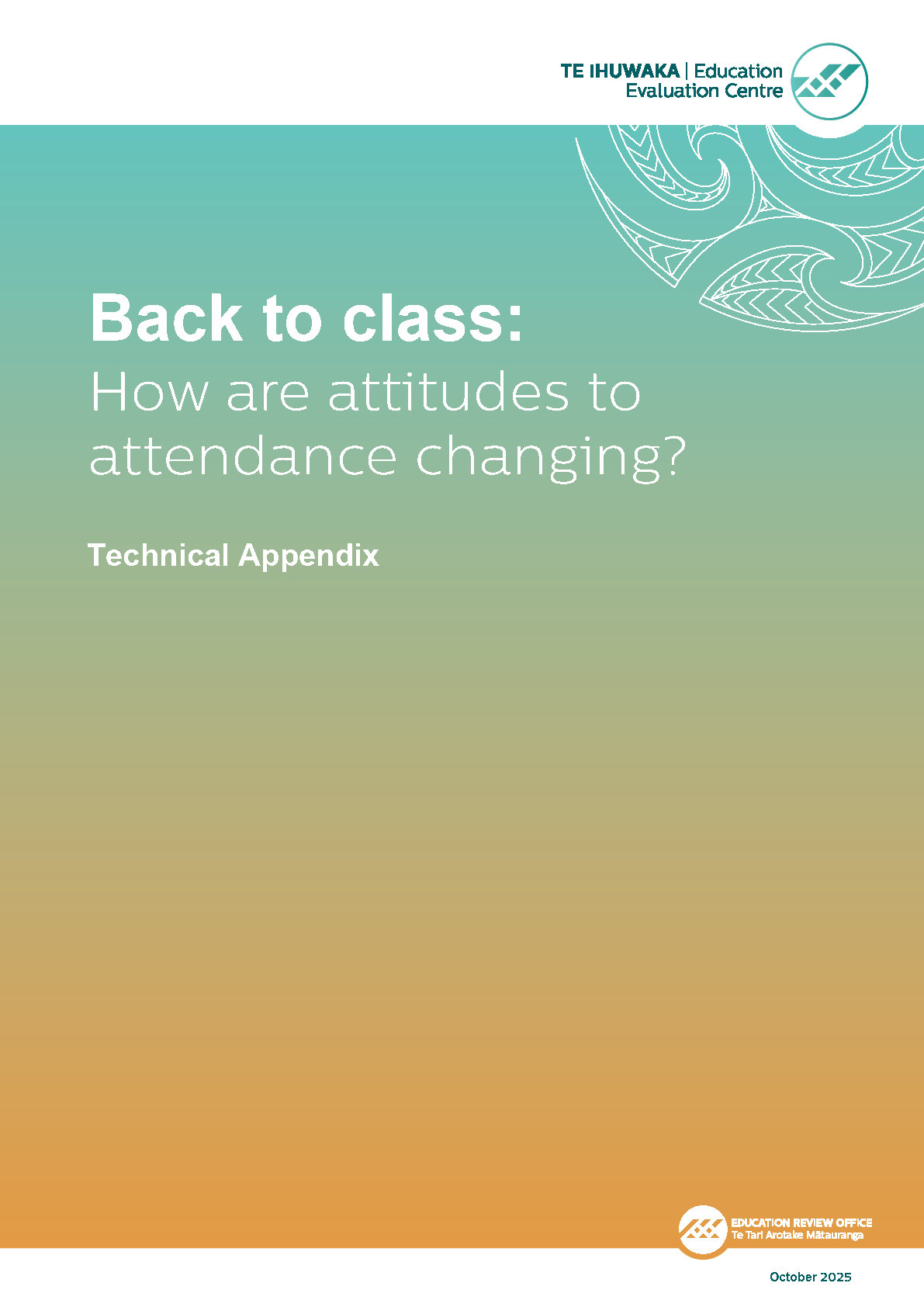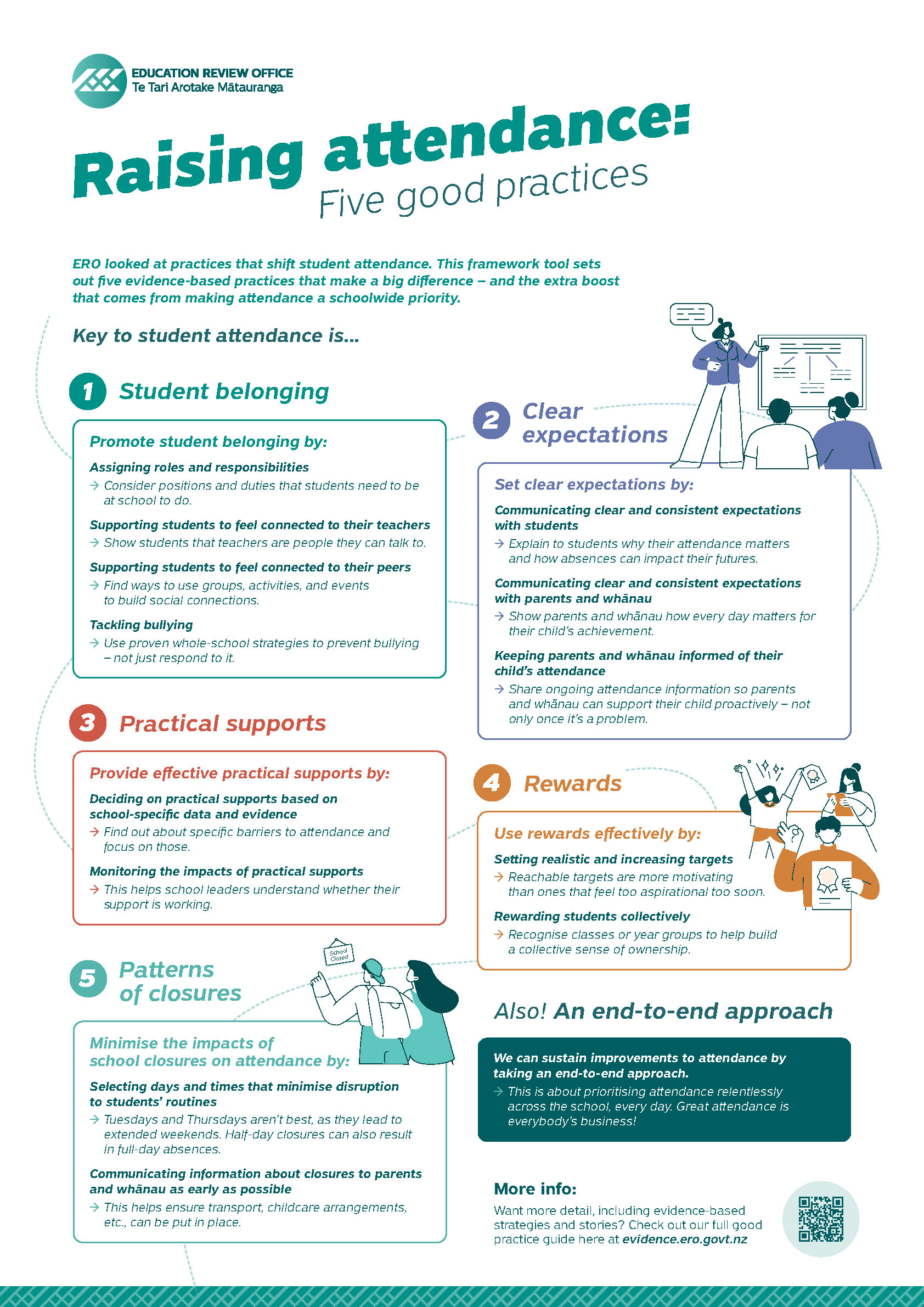Related information
You may also be interested in our other reports relating to attendance
Read Online
Executive summary
Going to school is critical for our children’s future. The evidence is
clear that every day of school matters – missing school leads to lower
achievement. In New Zealand, students are expected to attend school
every day the school is open. And yet many don’t. The Education Review Office (ERO) was commissioned to undertake a national review to identify whether regular attendance and attitudes to attendance have changed and what school actions and supports make a difference. We found that, for the first time since 2022, attendance is
improving. This summary sets out why and what more can be done.
What is attendance?
Attendance is when students are at school and in the class they are supposed to be in. If students miss a week or more of school in a term they have ‘non-regular attendance’. Students who miss a week each term will have missed out on a year of schooling by the time they are 16.
Why is attendance important?
Attendance is a key driver of students’ achievement, engagement in school, wellbeing, and their lifelong outcomes. Regular attendance is linked to academic achievement in both primary and secondary schools. Conversely, poor attendance is associated with increased anxiety about schoolwork, lower sense of belonging, lower motivation, greater exposure to bullying, and feeling unfairly treated by teachers. Long-term consequences of poor attendance include lower qualifications, reduced employment and income, poorer health, increased justice system involvement, and higher government costs.
Why do attitudes to attendance matter?
Attitudes are deep beliefs that shape thoughts and decision-making. Attitudes matter because they influence behaviour, including whether a student goes to school regularly. Students who think daily attendance is important are more likely to attend regularly than those who don’t. Parents who say they are comfortable with their child missing a week or more of school are more likely to have a child who
doesn’t attend regularly.




